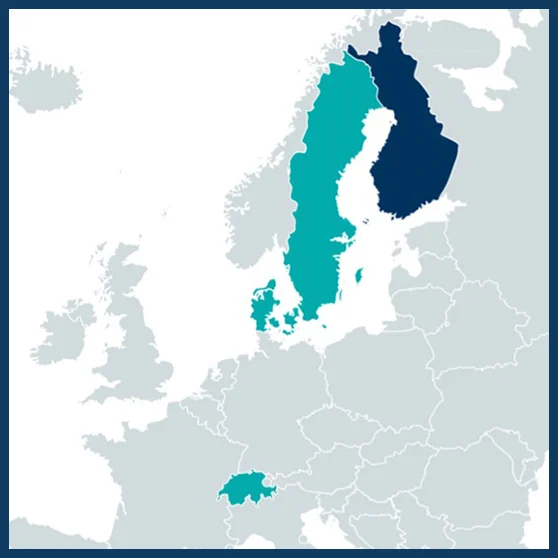01/03/2022 – 28/02/2025
€ 998,000
Anu LÄHTEENMÄKI-UUTELA
anu.lahteenmaki-uutela@syke.fi
Coordinator: Environmental Policy, Finnish Environment Institute (SYKE), Helsinki, Finland
Centre for Private Governance, University of Copenhagen, København S, Denmark
Raoul Wallenberg Institute for Human Rights and Humanitarian Law, Lund, Sweden
Development and Environment, University of Bern, Bern, Switzerland

European consumption has a high biodiversity footprint outside Europe. Timber, soy, palm oil, cocoa and coffee are examples of everyday goods the production of which connected to biodiversity loss. Through regulating trade, supply chains, and the foreign operations of European companies, the European Union (EU) and European countries can protect biodiversity globally. As such, the EU is currently planning for example a Deforestation Regulation and a horizontal regulation on due diligence in supply chains. In this context, BIO-TRADE will analyse how the EU and European countries can protect biodiversity outside Europe. We study the topics and contents of laws as in how they set demands for regulation targets. Legal rules on trade and supply chains rely on the criteria for sustainable production and products. The criteria must be fair and transparent. We focus on how ecological and biodiversity criteria should be brought into European law so that laws are coherent and effective while being acceptable under the rules of the World Trade Organization.
BIO-TRADE will conduct research on the impacts of European regulations on business activities and biodiversity in different parts of the world outside Europe, for example in Asian and Latin American forests. The goal of our research is to recognise fair and impactful policies that enhance the realisation of environmental rights. To this aim, BIO-TRADE will:
• study laws in context: interpretation, implementation and impacts of laws;
• study trade law and supply chain laws from a business perspective;
• study laws on ecological compensation from a business perspective;
• study how environmental human rights manifest in European law;
•study the interconnection between public and private regulation;
• organise dissemination and stakeholder engagement events for a broad variety of stakeholders including youth and their organisations, businesses and their organisations, governments, and scientists. The aim of the events is to discuss research results and to gather input for policy briefs and the Practical Guide;
• produce scientific articles, policy briefs, and a Practical Guide.
The main outcome of BIO-TRADE is enhanced knowledge and practical guidance on how the European Union and the governments of European countries should regulate trade, supply chains, and the foreign operations of European companies to protect biodiversity at a global scale. If European businesses and consumers stop buying goods connected to global biodiversity loss, it can serve as an example for other Western economies.
BIO-TRADE supports evidence-based European regulation to protect and enhance biodiversity in global trading systems. The legal instruments are related to trade and imports, supply chain management, and ecological compensation that targets no-net-loss of biodiversity. Stakeholders involved in the project include EU policy makers, national governments, businesses and business organizations, civil society organizations, and consumers. The activities and results of the project will enhance transparency in global supply chains and increase the recognition of the right to a healthy environment.
We study and learn from the impacts of European regulations at selected economic sectors that have major impacts for biodiversity globally and where Finnish, Swedish, Danish and Swiss business and consumption is heavily involved. Our case study partners will be from the importing countries in Latin America and Asia.
- Innovation Fund Denmark (IFD), Denmark
- Academy of Finland (AKA), Finland
- The Swedish Environmental Protection Agency
(SEPA), Sweden - Swiss National Science Foundation (SNSF),
Switzerland